What is the #1 predictor of success in college?
SAT Scores? High School GPA? Academic Interests?
Success in college is not defined by a single variable. Rather, negotiating the Collegescape, involves recognizing the unique culmination of actions and experiences that make this academic transition different.
Unfortunately, too many students do not realize their lack of preparedness until their first semester college grades are finalized. Delaying this realization can have severe implications, both academically and financially.
According to US News and World Reports, one in three first-year students walk away from college before their sophomore year.
What are reasons students walk away from college?
Underprepared? Overwhelmed? Misinformation?
Students often identify that they were “good students” in high school. They attended class, completed their required work and most often experienced success. But then why do “good students” do “bad”?
Responsibility for learning shifts from the instructor to the student in higher education, creating a new culture shock. Success relies on “active” student learning: creation of study guides, establishing self-imposed deadlines and independent time management.
According to the Learnwell Project, students struggle to navigate the 80%/20% reality of the Collegescape.
How can students best prepare for college?
The Collegescape helps you navigate the landscape of the college transition and strives to change the narrative of college readiness.
Beyond our enthusiasm and passion lies proven strategies and techniques that result in positive outcomes. While many others offer subject-specific support, The Collegescape ventures beyond academic content and into the realm of holistic student success.
We strive to minimize or even eliminate the college student learning curve by providing the following elements of The Collegescape:
